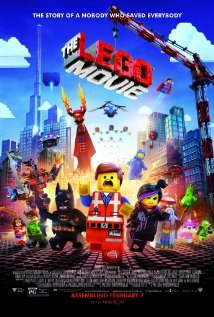Why SAG-AFTRA Deal Did Not Receive Full Approval from National Board
By Movieguide® Contributor
While the SAG-AFTRA deal will likely end the actors’ strike, some feel the contract does not do enough to protect against AI.
Even after the negotiators came to a deal to end the actors’ strike, the studios were not fully in the clear. Approval by negotiators was just the first step in bringing the actors back to work, and it would be followed by an approval vote by the union’s national board and a ratification vote by the union’s full membership afterward.
While the union’s national board approved the contract earlier this month, the decision did not come unanimously. Of 80 members, at least eight voted against the deal, believing it did not do enough to protect against AI.
“There should be no AI. Only human beings should be used in what we create for public consumption,” said SAG-AFTRA board member Anne-Marie Johnson. “Without staving off AI, everything we achieved is for naught. It’s a waste of time.”
Fellow dissenter Shaan Sharma, an alternate negotiating team member, believes the contract leaves “significant loopholes,” putting many union members under an “existential threat.”
The proposed contract protects actors from their likenesses being digitally recreated without their consent. It also protects deceased actors, allowing their estates to determine whether a digital replication will be allowed. Sharma, however, does not believe these protections are enough.
“If the replica doesn’t give a clear impression that it’s you, none of the protections apply,” he explained.
Given AI’s ability to create a conglomerate based on a data set, it could combine thousands of actors to create a new “person” without compensation to any of the actors it is based on. In this way, studios could create AI-generated background actors to cut costs on hiring extras.
However, SAG-AFTRA president Fran Drescher and head negotiator Duncan Crabtree-Ireland believe they have secured the best protections currently possible.
“The reality is, there has never been a time when we have been able to successfully just block technology from advancing,” Crabtree-Ireland said. “And so strategically, our best option is to channel that technology in the best possible direction.”
To help guide the use of the technology to the benefit of actors, the contract stipulates that studios and unions will meet every six months to discuss the use of the technology to create a unified front in influencing AI-related lawmaking.
Crabtree-Ireland did, however, admit that the contract does not guarantee that AI will not deteriorate the craft of acting, which he believes no contract could do.
Drescher, meanwhile, has scolded dissenters, saying they are speaking out against the contract for the sake of attention.
“[They are] naysayers that have exploited this momentum of ours…to gain a voice for themselves,” Dresher said, encouraging union members to receive information “with an open heart and open mind, if you haven’t yet been poisoned by contrarians.”
While it remains to be seen how well the contract will protect actors, the union’s negotiating committee believes this is the best they could have done.
“From my point of view, we gained the maximum amount of leverage and we reached a deal at out point of peak leverage in this process,” said Crabtree-Ireland. “Continuing this strike into the holiday period, in my view, would not have resulted in additional leverage. It would have probably de-leveraged us for a variety of reasons. And I do not believe we would have been able to gain additional gains in this contract by staying on strike longer.”
Despite concerns about AI protections, the contract received approval from the union’s national board. The contract is now undergoing a ratification process, where all SAG-AFTRA members vote on it.
Movieguide® previously reported:
The actors’ strike ended last week after 118 days, and Fran Drescher and Duncan Crabtree-Ireland explain why AI regulation was a hot-button issue from start to finish.
“With AI, things move very fast, and three months is equivalent to a year in how things can change,” said Drescher, the SAG-AFTRA President. “If we didn’t close that up now, then you’ll be so far behind you’ll never be able to catch up. It was really important to us that we got the protections we felt that we absolutely needed to sustain this contract until the next one.”
This topic proved to be the hardest to resolve as this was the sole issue left for the final weeks of negotiations. The protection that SAG-AFTRA negotiators pursued was more extensive than the ones the writers pursued with their strike. This differed from both unions’ desire for better compensation from streaming platforms, where the actors’ and writers’ requests were comparable. Thus, once the writers’ strike was resolved, the question of better pay was quickly resolved for the actors, while AI regulation remained unsolved.
https://www.instagram.com/p/CzZ5Y9KO6e1/
Questions or comments? Please write to us here.


 - Content:
- Content: 
